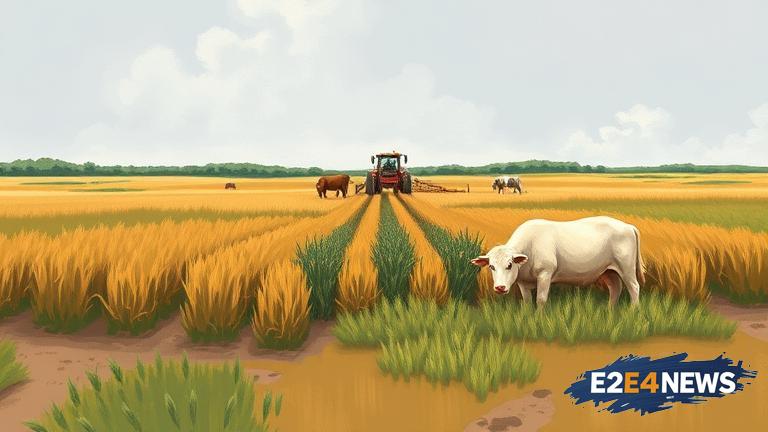The ongoing global trade wars have been a significant concern for many industries, but the agricultural sector is finding ways to thrive amidst the challenges. With the rise of protectionism and tariffs, farmers and agricultural businesses are being forced to adapt and explore new markets. However, this shift is also creating opportunities for growth and innovation in the sector. For instance, the trade tensions between the US and China have led to an increase in exports of agricultural products from other countries, such as Australia and Brazil. Additionally, the trade wars are driving investment in agricultural technology, as companies seek to improve efficiency and reduce costs. The use of drones, precision farming, and other digital technologies is becoming more widespread, allowing farmers to optimize their yields and reduce waste. Furthermore, the trade wars are also leading to a greater focus on sustainability and environmental stewardship in agriculture. As consumers become more aware of the impact of their food choices on the environment, farmers are responding by adopting more sustainable practices and reducing their carbon footprint. The agricultural sector is also seeing a rise in demand for alternative proteins, such as plant-based meats and insect-based products. This trend is being driven by changing consumer preferences and a growing awareness of the environmental and health benefits of these products. Moreover, the trade wars are creating new opportunities for agricultural trade between countries that are not directly involved in the conflicts. For example, the EU and Japan have recently signed a trade agreement that will increase trade in agricultural products between the two regions. The agreement will reduce tariffs and other trade barriers, making it easier for farmers to export their products to these markets. In addition, the trade wars are also leading to a greater focus on food security and self-sufficiency, as countries seek to reduce their reliance on imports and develop their own domestic agricultural industries. This trend is being driven by concerns about the impact of trade disruptions on food supplies and the need to ensure that countries can feed their own populations. Overall, while the global trade wars present significant challenges for the agricultural sector, they are also creating new opportunities for growth, innovation, and sustainability. As the sector continues to evolve and adapt to the changing trade landscape, it is likely that we will see new technologies, products, and business models emerge that will help to drive its success. The agricultural sector is a critical component of the global economy, and its ability to thrive amidst the trade wars will be important for ensuring food security and economic growth in the years to come. The sector’s resilience and adaptability will be key to its success, as it navigates the challenges and opportunities presented by the trade wars. In conclusion, the agricultural sector is finding silver linings amidst the global trade wars, and its ability to innovate and adapt will be crucial to its long-term success.
